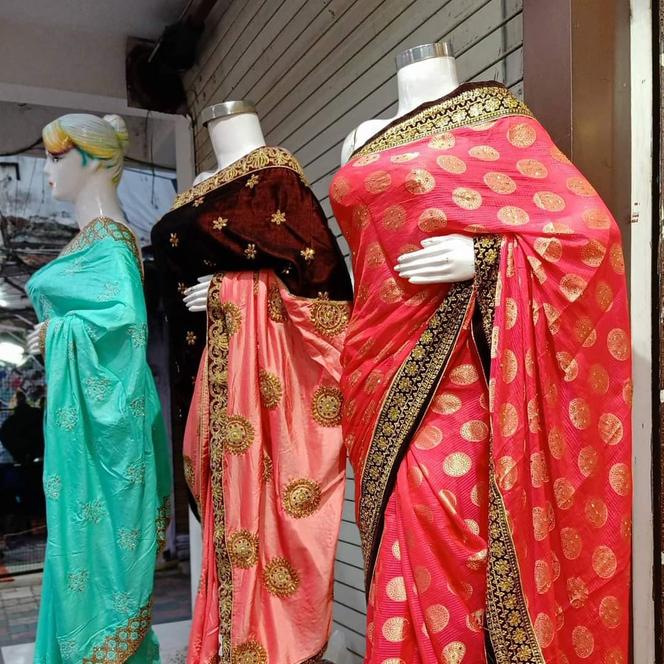

LETTER FROM NEW DELHI

Nestled in the Mumbai suburb of Andheri, the workshop resembles a buzzing beehive. The seamstresses had set aside their sewing machines for a puja (prayer) on October 11 to celebrate the goddess Durga, symbolizing the victory of good over evil, which can ensure prosperity. Several pairs of large scissors were lined up on a workbench, covered with flower petals, to be blessed. They have provided jobs to hundreds of underprivileged women over the past 10 years, who work here giving saris a second life.
In the first room, cluttered with fabrics and patterns, a man examined an old sari on a neon-lit table. He identified each defect, each area of wear and tear, to which he affixed small self-adhesive squares. The fabric was then passed to expert hands, who cut it out using patterns, bypassing the defects. In an adjoining room, dozens of seamstresses put together and sew new, contemporary pieces for an international audience. The results are unique, top-of-the-range models of jackets, bombers, vests, kimonos, bags, yoga items, jewelry and homeware, sold exclusively for export to some 30 countries, including France, Italy and Spain. The Indian market is very narrow, owing to caste prejudice, which makes it difficult to wear clothes whose origin is unknown.
I Was A Sari was born in 2014, with a modest workshop in the Dharavi slum, Asia's largest, launched by an Italian citizen, Stefano Funari, keen to progress the emancipation of women. "When I arrived in India in 2011, I started working on projects that supported children in the slums. Then I quickly realized that the most effective way to help these children was to empower their mothers. That's what led me to work with disadvantaged women," he said. Ten years on, the company now has seven production centers. Some 350 people work there, including 300 women. "We're getting bigger every year and we're going to grow even more," Funari said in his modest office on the second floor, between the seamstresses and the marketing department.
To streamline its production, the company has outsourced production to two non-governmental organizations (NGOs), the Community Outreach Program and Animedh Charitable Trust, involved in vocational sewing training programs. I Was A Sari designs the products; sources materials; and manages sales, marketing, logistics and oversees quality control.
It all began in the Chor Bazaar, located on Mutton Street in South Mumbai and one of India's largest flea markets. It's a bric-a-brac of everything from old Bollywood posters to antiques and old saris, the raw material for Funari's workshops. They arrive at the souk in potli, cloth bags brought by the Waghri, a nomadic, impoverished community from Gujarat and Rajasthan, who traditionally bartered second-hand clothes door-to-door in exchange for steel or aluminum utensils. In the days of the British colonialists, the Criminal Tribes Act of 1871 classified the Waghri in this category. The legislation was abolished after independence, but it has contributed to this community's stigmatization.
You have 38.2% of this article left to read. The rest is for subscribers only.
